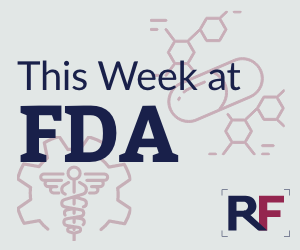This Week at FDA: MDUFA V public meeting, CMS’ Aduhelm decision, and more
 Biologics/ biosimilars/ vaccinesBiotechnologyDiagnostics/IVDsMedical DevicesNorth AmericaPharmaceuticalsProduct LifecycleRegulatory Intelligence/Policy
Biologics/ biosimilars/ vaccinesBiotechnologyDiagnostics/IVDsMedical DevicesNorth AmericaPharmaceuticalsProduct LifecycleRegulatory Intelligence/Policy Biologics/ biosimilars/ vaccinesBiotechnologyDiagnostics/IVDsMedical DevicesNorth AmericaPharmaceuticalsProduct LifecycleRegulatory Intelligence/Policy
Biologics/ biosimilars/ vaccinesBiotechnologyDiagnostics/IVDsMedical DevicesNorth AmericaPharmaceuticalsProduct LifecycleRegulatory Intelligence/Policy